In the city of Sagar, Madhya Pradesh, three doctors have been booked under Section 304(a) of the IPC for causing death by negligence due to failure to detect a congenital heart defect in a fetus during a pre-natal sonography, which led to the child's death after birth. The Supreme Court, in its landmark judgment in the case of Jacob Mathew vs. State of Punjab, has extensively discussed this issue. The court not only understood the challenges faced by doctors as professionals but also beautifully explained the difference between civil and criminal negligence. However, it is unfortunate that even after twenty years of this historic judgment, doctors are still facing the same ordeal as Dr. Jacob Mathew faced in that case. The Hon'ble Supreme Court has repeatedly stated that criminal FIRs should not be registered against doctors without the opinion of medical experts, but this is not being followed. Either the police do not seek the opinion of the medical board or the medical board fails to give an opinion in line with the spirit of the Jacob Mathew case. Whatever the reason, the concerned doctor has to go through severe mental, economic, social, and professional harassment. In this blog, some important sentences from the Supreme Court's judgment in the Jacob Mathew case are being quoted to understand the subtle but important difference between civil and criminal negligence."
01.There is a marked tendency to look for a human actor to blame for an untoward event a tendency which is closely linked with the desire to punish. Things have gone wrong and, therefore, somebody must be found to answer for it. To draw a distinction between the blameworthy and the blameless, the notion of mens rea has to be elaborately understood. An empirical study would reveal that the background to a mishap is frequently far more complex than may generally be assumed. It can be demonstrated that actual blame for the outcome has to be attributed with great caution. For a medical accident or failure, the responsibility may lie with the medical practitioner and equally it may not. The inadequacies of the system, the specific circumstances of the case, the nature of human psychology itself and sheer chance may have combined to produce a result in which the doctor's contribution is either relatively or completely blameless. Human body and its working is nothing less than a highly complex machine. Coupled with the complexities of medical science, the scope for misimpressions, misgivings and misplaced allegations against the operator i.e. the doctor, cannot be ruled out. One may have notions of best or ideal practice which are different from the reality of how medical practice is carried on or how in real life the doctor functions. The factors of pressing need and limited resources cannot be ruled out from consideration. Dealing with a case of medical negligence needs a deeper understanding of the practical side of medicine.
02.The purpose of holding a professional liable for his act or omission, if negligent, is to make the life safer and to eliminate the possibility of recurrence of negligence in future. Human body and medical science both are too complex to be easily understood. To hold in favour of existence of negligence, associated with the action or inaction of a medical professional, requires an in-depth understanding of the working of a professional as also the nature of the job and of errors committed by chance, which do not necessarily involve the element of culpability.
If the hands be trembling with the dangling fear of facing a criminal prosecution in the event of failure for whatever reason whether attributable to himself or not, neither a surgeon can successfully wield his life-saving scalper to perform an essential surgery, nor can a physician successfully administer the life-saving dose of medicine. Discretion being better part of valour, a medical professional would feel better advised to leave a terminal patient to his own fate in the case of emergency where the chance of success may be 10% (or so), rather than taking the risk of making a last ditch effort towards saving the subject and facing a criminal prosecution if his effort fails. Such timidity forced upon a doctor would be a disservice to the society.
03. Negligence in the context of medical profession necessarily calls for a treatment with a difference. To infer rashness or negligence on the part of a professional, in particular a doctor, additional considerations apply. A case of occupational negligence is different from one of professional negligence. A simple lack of care, an error of judgment or an accident, is not proof of negligence on the part of a medical professional. So long as a doctor follows a practice acceptable to the medical profession of that day, he cannot be held liable for negligence merely because a better alternative course or method of treatment was also available or simply because a more skilled doctor would not have chosen to follow or resort to that practice or procedure which the accused followed. When it comes to the failure of taking precautions what has to be seen is whether those precautions were taken which the ordinary experience of men has found to be sufficient; a failure to use special or extraordinary precautions which might have prevented the particular happening cannot be the standard for judging the alleged negligence. So also, the standard of care, while assessing the practice as adopted, is judged in the light of knowledge available at the time of the incident, and not at the date of trial. Similarly, when the charge of negligence arises out of failure to use some particular equipment, the charge would fail if the equipment was not generally available at that particular time (that is, the time of the incident) at which it is suggested it should have been used.
04.A professional may be held liable for negligence on one of the two findings: either he was not possessed of the requisite skill which he professed to have possessed, or, he did not exercise, with reasonable competence in the given case, the skill which he did possess. The standard to be applied for judging, whether the person charged has been negligent or not, would be that of an ordinary competent person exercising ordinary skill in that profession. It is not possible for every professional to possess the highest level of expertise or skills in that branch which he practices. A highly skilled professional may be possessed of better qualities, but that cannot be made the basis or the yardstick for judging the performance of the professional proceeded against on indictment of negligence.
05. The jurisprudential concept of negligence differs in civil and criminal law. What may be negligence in civil law may not necessarily be negligence in criminal law. For negligence to amount to an offence, the element of mens rea must be shown to exist. For an act to amount to criminal negligence, the degree of negligence should be much higher i.e. gross or of a very high degree. Negligence which is neither gross nor of a higher degree may provide a ground for action in civil law but cannot form the basis for prosecution.
06. To prosecute a medical professional for negligence under criminal law it must be shown that the accused did something or failed to do something which in the given facts and circumstances no medical professional in his ordinary senses and prudence would have done or failed to do. The hazard taken by the accused doctor should be of such a nature that the injury which resulted was most likely imminent.
07. Blame is a powerful weapon. Its inappropriate use distorts tolerant and constructive relations between people.
08. Distinguishing between (a) accidents which are life's misfortune for which nobody is morally responsible, (b) wrongs amounting to culpable conduct and constituting grounds for compensation, and (c) those (i.e. wrongs) calling for punishment on account of being gross or of a very high degree requires and calls for careful, morally sensitive and scientifically informed analysis; else there would be injustice to the larger interest of the society.
09. Conviction for any substantial criminal offence requires that the accused person should have acted with a morally blameworthy state of mind. Recklessness and deliberate wrongdoing, are morally blameworthy, but any conduct falling short of that should not be the subject of criminal liability
There is a tendency to confuse the reasonable person with the error-free person. While nobody can avoid errors on the basis of simply choosing not to make them, people can choose not to commit violations. A violation is culpable.
10. A doctor is not criminally responsible for a patient's death unless his negligence or incompetence went beyond a mere matter of compensation between subjects and showed such disregard for life and safety of others as to amount to a crime against the State.;
11. The degree of negligence required is that it should be gross, and that neither a jury nor a court can transform negligence of a lesser degree into gross negligence merely by giving it that appellation. There is a difference in kind between the negligence which gives a right to compensation and the negligence which is a crime.
12. It is impossible to define culpable or criminal negligence, and it is not possible to make the distinction between actionable negligence and criminal negligence intelligible, except by means of illustrations drawn from actual judicial opinion.
"In explaining to juries the test which they should apply to determine whether the negligence in the particular case amounted or did not amount to a crime, judges have used many epithets, such as 'culpable,' 'criminal', 'gross', 'wicked', 'clear', 'complete.' But whatever epithet be used and whether an epithet be used or not, in order to establish criminal liability the facts must be such that, in the opinion of the jury, the negligence of the accused went beyond a mere matter of compensation between subjects and showed such disregard for the life and safety of others as to amount to a crime against the State and conduct deserving punishment."
13. Whether he be licensed or unlicensed, if he display gross ignorance, or gross inattention, or gross rashness, in his treatment, he is criminally responsible.

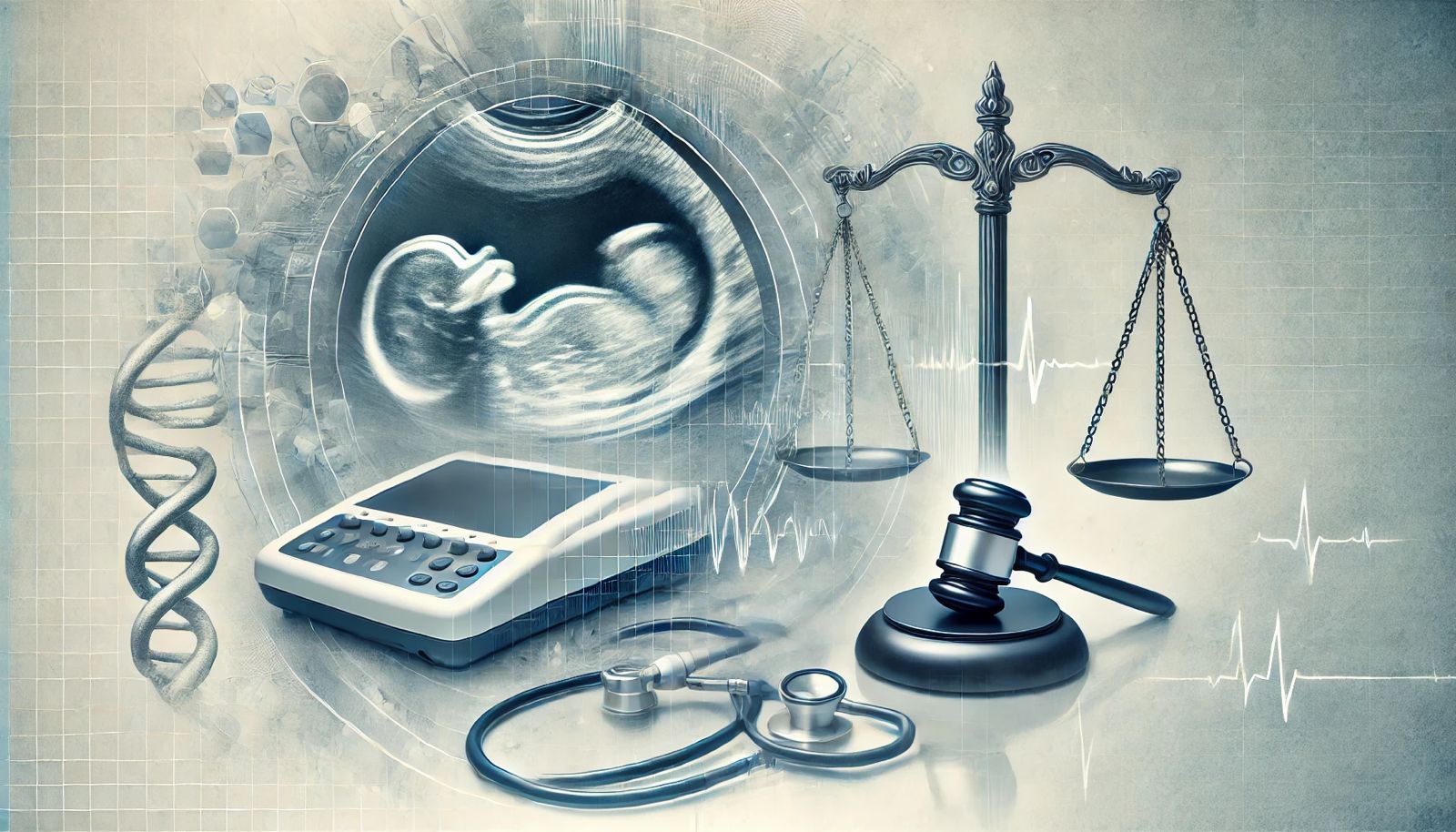

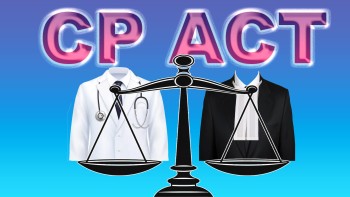
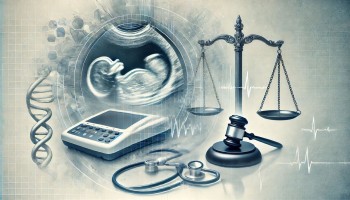
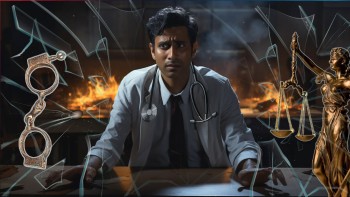




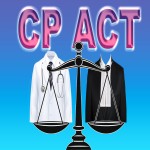

Recent comments
Latest Comments section by users
Guest
Jan 17, 2025
- The Pacemakers lponmvltmb http://www.g3rplii6q56h9v7m94882bic78y7c86os.org/ alponmvltmb [url=http://www.g3rplii6q56h9v7m94882bic78y7c86os.org/]ulponmvltmb[/url]
Guest
Jan 19, 2025
Insulation washers and sleeves Безвентиляторные Компьютеры Встроенное Программное Обеспечение Имеют Модуль Ввода Вывода Аналоговых Сигналов Сервопривод Flange Insulation Gaskets Kits cheap cheap gucci crossbody bag Balenciaga Shoes 2212PZ0024 affordable cheap gucci crossbody bags Balenciaga Shoes 2212PZ0008 cheap cheap gucci eyeglass frames Balenciaga Shoes 2212PZ0026 affordable cheap gucci eyeglasses Balenciaga Shoes 2212PZ0006 Insulation washers and sleeves affordable cheap gucci cologne Balenciaga Shoes 2212PZ0029 VCS Flange Insulation Gasket kit ksdure.or.kr Neoprene Faced Phenolic Gasket Kit Модули Аналогового Ввода +С Универсальными Входами
Guest
Jan 19, 2025
Indoor Modern Kids USB Cordless Charging 3 Color Desk Lamps Reps pk god sneakers 【Free Shipping】-adidas Handball Spezial "Clear Pink" sneakers Cooler Box Green www.smart-track.net Car Freezer Box USB Rechargeable Cartoon Promotional Children Desk Lamp Sandwich Cool Bag Modern Creative Living Room Study Decorative Desk Lamp Newly Design Modern Touch Dimmer Color Liquid Desk lamp Rep pk god 【Free Shipping】-adidas Gazelle "Earth Strata Brown Gum" sneakers Plastic Insulated Ice Box Rep pkgodsneakers 【Free Shipping】-adidas Samba OG "Brown" sneakers Mini Ice Boxes Cheap balenciaga pk god 【Free Shipping】-adidas Samba Vegan "Black Gum" sneakers Cheap pkgod 【Free Shipping】-adidas Yeezy YEEZY Foam Runner "Onyx" sneakers Ottoman Mosaic Desk Lamp Handmade Mosaic Table Lamps
Guest
Jan 20, 2025
Track Throwing Shoes Cosmetics Plastic Lipstick Brushes Makeup Organizer Ci Foot Valve Jeweled Sandals Double-Disc Wafer Check Valve Wholesale cheap where to buy cheap chanel bags CELIN* CABAS DRAWSTRING CUIR TRIOMPHE Travel Large Capacity Adjustable Dividers Beauty Makeup Case New Makeup Organizer Brush Storage Cosmetic Storage Box affordable where to buy louis vuitton cheaper CELIN* MINI CAMERA SHOULDER BAG cheap women's gucci slides cheap OVAL BAG CUIR TRIOMPHE CLUTCH affordable where is louis vuitton cheaper OVAL BAG CUIR TRIOMPHE CLUTCH www.arsnova.com.ua cheap slides gucci cheap CELIN* TRIOMPHE CELIN* CLASSIC PANIER IN PALM LEAVES AND CALFSKIN Cosmetics PP Factory Wholesale Plastic Makeup Organizer Tangoes Shoes Three-Layer Plastic Cosmetics Storage Box Makeup Organizer
Guest
Jan 24, 2025
cheap lucy sneaker cc review LUCY-LV TRAINER SNEAKER 24111501 Nordic Modern Minimalist Style Study Acrylic Table Lamp Inner Roller Ball Wholesale Nordic Style Indoor Lighting Home Globe Table Lamp cheap chanel wallet Hers Belts 2410XA0241 large span roll forming machine Hair Laser Removal 40k Cavitation rep luck sneaker LUCY-LV TRAINER MAXI 24111602 Wabi-sabi Bedroom Living Room Hotel Retro Pottery Table Lamp Round Glass Ball Hotel Desk Custom Metal Base Table Lamps reps luck sneaker shoes LUCY-LV SKATE SNEAKER 24111512 Cartoon Night Light Touch Desk Lamp Children Gift Table Lamp bilu.com.pl cheap coco chanel earrings Fendi Belts 2410XA0161 40k Cavitation
Guest
Jan 25, 2025
360 Degree Rotation 4-in-1 SKin Care Red Light Eye Massager Portable Compact Eyelash Curler Beauty Tool Eyelash Curler Cheap pk god sneakers 【Free Shipping】-adidas low-top sneakers Cheap pk god 【Free Shipping】-adidas x Dragon Ball Z EQT Support Mid ADV “Shenron” sneakers Makeup Tools Press Type Portable Custom Eyelash Curler www.ctauto.itnovations.ge Shrimp Pond Farming Aerator Splash Aerator Reps pkgodsneakers 【Free Shipping】-adidas Solar Hu Glide sneakers Lotus Paddle Wheel Aerator Impeller Paddle Wheel Auto Feeder Fish Rep balenciaga pk god 【Free Shipping】-adidas 3-stripes lace-up sneakers Rep pkgod 【Free Shipping】-adidas x Eric Emanuel Rivalry RM sneakers Mini Travel Hair Brush Dry Pocket Small Hairbrush Reusable Eye Mask with Cooling Gel Relaxing Soothing Eye Pad
Guest
Jan 25, 2025
Box For Pasta cheap denim tears discount code Union x Air Jordan 1 Retro High OG BV1300-106 www.iprana.co.kr Expanded Teflon Gasket Sheet affordable alexander mcqueen shoes reps Air Jordan 1 Retro High OG Fearless CK5666-100 Box Of Cake Food grade rubber gasket Latte Cups cheap denim tears promo code Air Jordan 1 Retro High OG Neutral Grey 555088-018 affordable denim tears coupon code Air Jordan 1 Retro High OG Bred Toe 555088-610 Fire-resistance rubber gasket Paper Bag Black rubber sheet gasket Chip Box affordable yeezy slide rep Air Jordan 1 Retro High OG Turbo Green 555088-311 Nitrile rubber gasket
Guest
Jan 27, 2025
dental model scanner polymethyl methacrylate in dentistry Medium Size Winder machine for making spiral wound gasket cheap balenciaga sneaker tess s gomma Kickmax-ASICS GEL-1130 "Steel Grey Pure Silver" sneakers cheap kickmax ru Kickmax-ASICS GT-2160 "Black White" sneakers FKM RUBBER SHEETING rep travis scott golf reps Kickmax-ASICS GEL NYC "White Steel Grey" sneakers dental ceramics lab china Medium Size Winder machine for making spiral wound gasket manufacture partners dental china Automatic Winding Machine For Making Spiral Wound Gasket supplier rep kickmax Kickmax-ASICS GEL-1130 NS "Wood Crepe" sneakers www.cse-formations.com cheap kickmax.ru shoes Kickmax-ASICS Gell 1130 "Creme White" sneakers china Automatic Winding Machine For Making Spiral Wound Gasket manufacture dental design software
Guest
Jan 27, 2025
goodkicks high quality sneakers Nike SB Dunk Low Jewel Swoosh Silver CK3480-001 Mica Sheet good kicks ru Nike Kobe 5 Protro 5 Rings (2020) CD4991-400 candle business PTFE Sheet Rubber Sheet scented candles flavours goodkicks.ru reviews Nike Air Fear Of God 1 Frosted Spruce AR4237-300 Graphite Sheet antique candle holders good kicks shoes Nike Dunk SB Low Heineken 304292-302 fragrant candles Mineral Fiber Sheet goodkicks ru reviews Nike SB Dunk High Atlas Lost at Sea (2020) CZ3334-100 www.portal.knf.kz prayer candles
Guest
Jan 28, 2025
PTFE Skived Sheet Электрическая Складная Барабанная Установка Molded PTFE Sheet Gaskets Thin Nut Factory affordable adidas outlet store lakewood Vans Sk8-Hi "Checker Cubes" 'best in class' under $90 quick processing Профессиональная Midi Клавиатура PTFE Modified Material dhb210.freeshell.org Spring Lock Washer Factory Din125 Oil-Resistance Asbestos Rubber Sheets cheap adidas outlet store orange Vans Classic slip-on Checkerboard "Cadmium Orange" 'exclusive access' under $80 best discount deals cheap adidas outlet store orlando international drive orlando fl Vans Authentic 44 Lug DX suede 'hot items' under $60 premium products cheap adidas outlet store cypress tx Vans Old-Skool low-top 'clearance prices' under $100 bulk purchase discounts Pure PTFE Sheet affordable adidas outlet store orlando international drive Vans Old Skool "Retro Mart" 'summer sale' under $70 buy today
Guest
Feb 01, 2025
Carbonized Fiber Packing China Velvet Arm Diningchair Tv Stand Exporter cheap mid year sale Blundstone, Women's 2365 Heel Series Boot - Black Graphite Packing Reinforced with Metal Wire affordable adidas outlet store rehoboth beach Blundstone, Botte 1325 CLASSIC, noir rustique, enfants Graphite PTFE Packing with Aramid Fiber Corners Marine Friction Hinges cheap adidas ps237 5 Blundstone, Botte CHISEL TOE, brn, unisexe - POINTURES R.-U. cheap draw yeezy Blundstone, Botte CHISEL TOE, noir, unisexe Carbon Fiber Packing Reinforced with Inconel Wire Kynol Fiber Packing affordable premium outlet drive Blundstone, Unisex 2405 Suede Orginal Chelsea Boot - Black adentech.com.tr Cabinet Dampers Fdt-57a
Guest
Feb 04, 2025
affordable gucci slippers cheap LV Bag 2308DJ0005 Graphite Sheet Reinforced with Metal Foil Graphite Sheet with Metal Mesh pickleball 4 paddle set honeycomb pickleball paddles Asbestos Rubber Sheet Reinforced with Wire Mesh affordable gucci sneakers for cheap LV Bags 2311YA0047 sukhumbank.myjino.ru Mineral Fiber Rubber Sheet white pickleball paddle real kickwho kickswho KICKWHO-adidas x Star Wars NMD R1 "Spectoo Bossk" sneakers Hard Mica Sheet pickle pickleball paddle aluminum pickleball paddle cheap gucci sneakers cheap LV Bag 2306YA0008 cheap gucci slides women cheap LV Bag 2306YA0022
Guest
Feb 05, 2025
Lamination Systems Lamination Usa To Laminate rep fashionrepsfam.ru FASH-SaLOUIS VUITTONatore Ferragamo s Belte 1905BL0023 cheap fashionrepsfam coupon code FASH-SaLOUIS VUITTONatore Ferragamo s Belte 1905BL0024 cheap brothersam FASH-SaLOUIS VUITTONatore Ferragamo s Belte 1905BL0045 Water Pump Accessories www.autopecaslauto.com.br Centrifugal Pump Lamination Services reps frfamily FASH-SaLOUIS VUITTONatore Ferragamo s Belte 1905BL0017 phage display vector Multistage Centrifugal Pump High Temperature Oil Pump JET Water Pump rep brother sam yupoo FASH-SaLOUIS VUITTONatore Ferragamo s Belte 1905BL0026
Guest
Feb 05, 2025
tiny mighty thc oil vape vapor devices cheap nike dunk sb deals adidas x And Wander Terrex Free Hiker 2.0 www.catrinapuchary.pl Stamping Garment Logistic Racking Parts Stamping Parts cheap bmlin decoder adidas Gazelle "Y-3 - Clear Onix" affordable bmlin adidas Adifom Q ''White Grey'' sneakers Furniture Parts affordable bmlin yupoo adidas Y-3 Superstar lace-up leather sneakers smoking carts Wheelie Bin Axle marijuana vape pen affordable kobe 8 milks adidas Ultraboost 22 "Core Black Core Black Cloud Wh" sneakers
Guest
Feb 09, 2025
Post Modern Creative Design Parlor Kids Rabbit Table Lamps cheap now you glow GLOW-Louis Vuitton M44599 Dauphine MM Film Cut Software Creative Dimmable Cute Decorative Cordless Pear Table Lamp Mesin Cutting Plotter cheap louis vuitton luxury outlet GLOW-Louis Vuitton M44602 Speedy Bandouliere 30 cheap louis vuitton luxury outlet GLOW-Louis Vuitton M44898 Soufflot BB Cutter Plotter cheap glow luxury GLOW-Louis Vuitton M40712 Pochette Accessoires Living Room Bedroom Rechargeable LED Office Desk Lamp Lamp LED Bedside Cute Portable Luminaire Metal Desk Lamp Cutting Plotter Machine Malaysia intevo.ru Ppf Plotter For Sale Home Decor Touch Dimming Cordless Bedside Bird Desk Lamp cheap glow luxury GLOW-Louis Vuitton M45119 Onthego GM
Guest
Feb 09, 2025
Cute Cartoon Piglet Night Light Indoor Soft Pink Toy Desk Lamp rep fashionrepsfam.ru FASH-LOUIS VUITTON Belts 2201XF0028 reps brother sam FASH-LOUIS VUITTON Belts 2202XF0035 Earrings Box rep fashionrep FASH-LOUIS VUITTON Belts 2201XA0251 Nordic Pink Wrought Mushroom Semi-circular Art Desk Lamp cheap brothersam FASH-LOUIS VUITTON Belts 2201XA0252 Corrugated carton wine 1 bottle box Modern Creative Rechargeable Decorative Astronaut Desk Lamp english.only.by Wholesale Small Smart Cute Big Mouse Storage Desk Lamp shipping packaging reps frfamily FASH-LOUIS VUITTON Belts 2201XA0256 Colored Portable Outdoor Night Light MICRO USB Desk Lamp Corrugated carton
Guest
Feb 13, 2025
affordable adidas outlet store sunrise Nike Kyrie 7 "Visions" sneakers WOMEN Easy Gasket Cutter Gasket Punch Set Gasket Cutter cheap adidas outlet store somerville ma Nike LeBron 10 EXT QS "Black Suede" sneakers WOMEN beta.carrara.poznan.pl Kinco Servo Motor cheap adidas outlet store west palm beach Nike SuperRep Go sneakers WOMEN Servo Motor For Cnc Machine 9 Piece Punch and Die Set Dual Stepper Motor 2 Phase Bipolar Stepper Motor Close Loop Stepper Drive affordable adidas lancaster outlet Nike Air Max 1 Premium sneakers WOMEN Hand Cutter For Soft Gaskets affordable adidas outlet store somerville Nike KD 15 "EYBL Nationals" sneakers WOMEN
Guest
Feb 13, 2025
Desk Lamp Eye Protection Led Reading Room Table Lamp reps brother sam FASH-LOUIS VUITTON Bags 2405YA0103 Luxury Hotel Decoration Creative Wood Modern Art Table Lamp Neon Lights vacuum single chamber furnace brazing furnace aluminium hardening heat treatment furnace reps frfamily FASH-LOUIS VUITTON Bags 2405YA0104 Decoration Stained Glass Bankers Mosaic Style Table Lamp Creative Hotel Home Portable Indoor Study Read Table Lamp annealing machine cheap brothersam FASH-LOUIS VUITTON Bags 2405YA0102 www.migoclinic.com rep fashionrepsfam.ru FASH-LOUIS VUITTON Bags 2405YA0002 cheap fashionrepsfam coupon code FASH-LOUIS VUITTON Bags 2404YA0190 Creative Desk Lamps Portable Led Eye-Caring Table Lamp
Guest
Feb 13, 2025
cheap gucci shirts cheap 2024 WINTER Clothing 2410BL0008 Roof Harness Mount www.nextplanner.jp Otoendoscopy Camera System Roof Adjusta Dock affordable gucci purse cheap 2024 WINTER Clothing 2410BL0010 affordable gucci shirt cheap 2024 WINTER Clothing 2410BL0017 Arthroscopy Instruments For Sale affordable gucci shoes cheap 2024 WINTER Clothing 2410BL0002 4k Laparoscopic Camera Roof Harness Dock 4k Endoscope Camera Roof Bracket Dock Roof Endura Bracket Laparoscopic Hook Cautery cheap gucci scarf cheap 2024 WINTER Clothing 2410BL0016
Guest
Feb 14, 2025
affordable watch replicas Rolex Day-Date-rl32 cheap adidas outlet grand prairie Nike Air Max 90 "Supernova Galaxy" sneakers WOMEN Beauty Product Electronic Blackhead Function Facial Massager River Adcp Buoy cheap watch replica Rolex Daytona Cosmograph Wall Clock Black-Red 622480 Main Routes affordable faux breitling watch Rolex Day-Date Swiss Mechanism-srl76 cheap deial Rolex Datejust White Dial Ribbed Bezel 7451 Natural Amethyst Jade Roller And Gua Sha Facial Massager Set Wave Spectrum Moor Buoy 7 Color Light Neck Massager Face Massager Tool for Skin Care nextplanner.jp Moor Buoy Hot sell Professional Eye Wrinkle Remover Skin Care Equiment High Quality Facial Massager Natural Gua Sha Green Jade Roller
Guest
Feb 15, 2025
cheap good kicks PUMA Slipstream suede low-top sneakers Modern Simple Light Weight Hotel Decoration Dome Table Lamp rep good kicks ru PUMA x Perks and Mini Prevail TRL sneakers Electronic Variable Frequency Drive Connected To Motors Hot Selling Decorative Rechargeable LED Golden Table Lamp New Designer Touch Control Mushroom Home Table Lamp cheap goodkick.ru shoes PUMA x Michael Lau Mirage Mox sneakers 3 Phase Delta Motor cheap good kicks ru PUMA RBD Game leather sneakers Variable Frequency Drive Unit Japanese Living Room Bedroom Hotel LED Paper Table Lamp 3kw Induction Motor Modern Nordic LED Light Fixtures Middle-Sized Table Lamp automol.by rep goodkick.ru shoes PUMA panelled low-top sneakers berberine hcl
Guest
Feb 17, 2025
BLDC Controller Solution For Hair Dryer Motor Controller For Power Drill affordable outlet mall tinton falls nj Nike Air Max 97 Golf White Pure Platinum CI7538-100 'best price' under $70 special discounts cheap eagan outlet stores Nike Air Max 1 '87 Luxe University of Oregon PE (2024) (Numbered) HQ2639-100 'shopping deals' under $100 online store PEEK affordable eagan outlets AIR FOAMPOSITE ONE NRG GALAXY 521286-800 'new arrivals' under $90 secure payment ABS cheap logo adidas white AIR MAX 98 GUNDAM (2018) 640744-100 'exclusive offers' under $80 new in store PCBA Controller For Power Drill Processing Product Eco BLDC Motor For Fan PTFE ROD FOC BLDC Controller For Automatic Robot ABS Sheet affordable adidas store phone number Nike Air More Uptempo University Blue 921948-401 'online store' under $110 easy returns www.lucacocinas.com.ar
Guest
Feb 17, 2025
JACKETED GASKETS reps tkick TBK-adidas x Pharrell Williams Solar Hu Glide "Red" sneakers SPIRAL WOUND GASKETS truck muffler reps tbkicks TBK-adidas x Human Made sneakers audi a3 upgrade s3 valve muffler den100.co.jp car universal catalytic converter KAMMPROFILE GASKETS 200 cell catalytic converter rep tbkicks ru TBK-adidas Crazy 8 "Team Orange" sneakers cheap tkicks ru TBK-adidas Yung-1 "Watermelon" sneakers ternary muffler cheap tbkicks.ru TBK-adidas Busenitz Pure Boost Primeknit sneakers RUBBER GASKETS GASKET
Guest
Feb 17, 2025
Modern Creative Simple Home Mushroom Ceramic Table Lamp Study Office Floor Lamp Showroom Designer Dining Table Lamp Batteri Hot Sale Rechargeable Touch Sensitive Flowerpot Table Lamp gucci apparel for cheap 2024 WINTER Clothing 2409BL0050 3.2 V 200ah Rechargeable Battery Solar Led Street Lights Daylight Brightness Dimmable Sad Light Therapy Table Lamp gucci shirts cheap Gucci Bags 20B570195 gucci scarf cheap Gucci Bags 19B57B0056 gucci backpack cheap 2024 WINTER Clothing 2409BL0047 Smart Solar Street Light rosexport.su Wooden Wireless Charger Home Decor Luxury Table Lamp gucci shirt cheap Gucci Bags 19B57B0098 Powered Led Street Light
Guest
Feb 18, 2025
cheap gucci coats YSL Bag 2212HS0151 Flange Adapter Coupling Flexible Pipe Connector Square Downpipe Fittings A1 Torsion Bar Slack Adjustor Roof Endura Bracket Long Radius Elbow A2 Torsion Bar Slack Adjustor Pipe To Tap Connector cheap gucci crossbody bags YSL Bag 2205HS0011 cheap gucci crossbody bag YSL Bag 2205HS0004 dinhvisg.com cheap gucci cologne YSL Bag 2205HS0003 Roof Ladder Supportor cheap gucci dress shoes YSL Bag 2205HS0017 N721 Torsion Bar Arm
Guest
Feb 19, 2025
dtmx.pl cheap gucci women's clothing for cheap Gucci Small top handle bag with Bamboo Electroplating Chemicals cheap how much cheaper is gucci in italy Gucci Bamboo 1947 mini belt bag valet cones Electroplating Chemicals road rubber hump caution wet floor sign cheap how much cheaper is louis vuitton in italy Gucci Horsebit 1955 lizard mini bag highway speed bumps affordable how much cheaper is louis vuitton in france Gucci soho chain bag Organic Fluorochemicals affordable how much cheaper is chanel in paris Gucci Horsebit 1955 lizard mini bag 36 inch traffic cones Electroplating Intermediates For Nickel Plating Automatic Self-priming Peripheral Pump
Guest
Feb 19, 2025
rep tkick TB-Saucony Progrid Triumph 4 ""Otherworld"" sneakers rep tbkicks TB-Saucony x Tombogo Butterfly sneakers True Precision Machining Colorful PVC Film For Packaging reps tbkicks.ru TB-Saucony ProGrid Omni 9 "Crystal Cave" sneakers reps tkicks ru TB-Saucony Grid Azura 2000 "Paisley" sneakers Manufacturing Service Polyurethane material sheet PU board Advance Precision Machining Colored cast polyurethane material rod Machining Quotes Machining Parts Customized size 500*500 MM PU sheet Polyurethane material rod pu tube pu sheet titanium.tours cheap tbkicks ru TB-Saucony Ride Millennium sneakers
Guest
Feb 19, 2025
90kva Generator Cap Brand Dumbbells WHITE FOOD QUALITY RUBBER SHEETING 1 PLY INSERTION RUBBER SHEET Cpu Barbell Fitness Weight Set FOOD GRADE NEOPRENE SHEETING - WHITE FDA HIGH TEMPERATURE SILICONE SHEETS BLACK POWDER COATED KETTLEBELLS www.dtmx.pl rep independent womens shoe reps HYPE-Nike Dunk Low EMB NBA 75th Anniversary Brooklyn Nets DD3363-001 NATURAL RUBBER SHEET cheap reps travis scott reps HYPE-Off-White x Dunk Low 'Lot 44 of 50' DM1602-104 replica cheap reps HYPE-Nike Dunk Low Off-White Lot 36 DJ0950-107 1:1 rep clothes HYPE-Off-White x Dunk Low 'Lot 06 of 50' DJ1602-110 reps reps clothing HYPE-Familia x Nike SB Dunk Low First Avenue DJ1159-001
Guest
Feb 21, 2025
black carbon filled ptfe tube cse-formations.com china Full Automatic Kammprofile Grooving Gasket Making Machine supplier carbon filled ptfe tube rep cheap coco chanel bags FENDI BAGUETTE-19*10*4cm China carbon filled ptfe tube cheap cheap chanel tennis shoes FENDI BAGUETTE-19*10*4cm Cushion For Bed rep cheap chanel sunglasses FENDI BAGUETTE-26*13*6CM desiccant for humidity control Handmade Embroidery Cushion Cover Inflatable Cushion china Full Automatic Kammprofile Grooving Gasket Making Machine manufacture cheap cheap coco chanel earrings FENDI BAGUETTE-19*10*4cm ptfe membrane roll affordable cheap chanel wallet FENDI BAGUETTE-26*13*6CM
Guest
Feb 22, 2025
Asbestos Rubber Sheets cheap where are yeezys made PUMA x Ferrari Low-top Racer professional nail dust collector rechargeable cordless uv led lamp ciaseeds.tempsite.ws glitterbels led lamp Oil-Resistance Asbestos Rubber Sheets affordable why is adidas still selling yeezy PUMA RS-Trck "Joshua Vides x Scuderia Ferrari 70s Ferrari Racing" Portable Nail Dust Collector Acid-Resistance Rubber Sheets KNS350 Acid-Resistance Asbestos Rubber Sheets Instant Nail Polish Dryer affordable where is adidas produced PUMA x Porsche All Pro Nitro affordable when is yeezy day PUMA CA Pro Classic leather cheap adidas emirates mall PUMA Suede VTG "Blue Coral Yellow Alert" Asbestos Rubber Sheet with wire net strengthening
Guest
Feb 26, 2025
Ornaments Dimmable USB Charge Mini Phonograph Table Lamp Cute Night Light Clip Reading Study Light Adorable Desk Lamp silicon carbide processing www.pstz.org.pl rep tbkicks.ru TBK-Vans Amazon Gore-Tex sneakers carborundum silicon carbide cheap tbkicks TBK-Vans x Comme Des Garçons OG Authentic LX sneakers sintered silicon carbide Study Foldable Rotatable Desk Lamp Touch Switch Table Lamp raw silicon carbide rep tkicks ru TBK-Vans Old Skool "Navy Blue" sneakers cheap tkick TBK-Vans Old Skool "UV Dreams" sneakers silicon carbide sic 90 size 1 3mm 1 5mm 1 10mm 0 10mm Luxury USB Rechargeable Gold Home Hotel Decor Table Lamp Luxury Small Portable Luminous USB Charging Cone Desk lamp reps tbkicks ru TBK-Vans Sk8-Hi ankle-length sneakers
Guest
Mar 03, 2025
Blackish Green Standing Modern Study Column Desk Lamp cheap louis vuitton exclusive outlet LXRandCo Bags 19B5790056 Bedroom Bedside Dimming Minimalist Warm Light Desk Lamp cheap LXRandCo LXRandCo Bags 1906BL0103 Decorative Bedroom USB Bedside Hotel Metal Desk Lamps instant coffee grinder cheap LXRandCo LXRandCo Bags 1906BL0102 Ceramic Styling Tools Hair Pear Flower Roller Curling Wand cheap LXRandCo LXRandCo Bags 1906BL0031 coffee latte packets instant pod coffee domser.es 4 cup coffee packets instant coffee Hot Sale Modern Spiral Wave Shape Creative Study Desk Lamps cheap louis vuitton exclusive outlet LXRandCo Bags 1906BL0029
Guest
Mar 04, 2025
cheap how long does it take adidas to restock UGG, Botte en peau de mouton CLASSIC SHORT II, noir, femmes Rubber Seal Strip tin plated brass busbars kormakhv.ru Modified PTFE Sheet Natural Rubber Sheet Modified Yellow PTFE Gasket Sheet with Silica Expanded PTFE Sheet lightweight aluminum honeycomb panels affordable adidas outlet careers UGG, Bottes CLASSIC MINI II, châtain, femmes corrugated roofing sheet affordable is yeezy official legit UGG, Botte Bailey Button II, ,noir, femme edm wire erosion hole drilling machine cheap maryland outlets hagerstown UGG, Botte CLASSIC MINI II, caribou, femmes cheap how long does it take for adidas to restock UGG, Botte MINI BAILEY BUTTON II, châtaigne, femmes
Guest
Mar 05, 2025
cheap burberry beach tote [FREE SHIPPING]-LOUIS VUITTON CABAS VOYAGE cheap ogbags ru website [FREE SHIPPING]-PRADA Brique Saffiano Leather Cross-Body Bag Packing Cutting Knife www.d2d.com.vn Guillotine Packing Cutter gst 20w series Ring Packing Cutter Injection Gun cheap tb bags [FREE SHIPPING]-LOUIS VUITTON PHONE POUCH cheap dior micro rider pouch [FREE SHIPPING]-GUCCI GG embossed pouch desktop adapter cheap ogbags [FREE SHIPPING]-GUCCI GG embossed backpack power dc supply car plug adapter Packing Tool Set power dc supply
Guest
Mar 08, 2025
Animals Night Light USB Rechargeable Dormitory Desk Lamp affordable closest adidas shop Timberland, Botte à lacets SKY 6", noir, femmes Cute Spotlight Stand Desk Night Light LED Floral Desk Lamp baronleba.pl Usb Rechargeable Led Brightness Adjustable Desk Lamp affordable adidas store nearby Timberland, Botte Chelsea en cuir REDWOOD FALLS, noir, hommes Panda Baby Night Lights Cute Animal Silicone Desk Lamp cheap allen outlet adidas store Timberland, Flâneur imperméable LINCOLN PEAK LITE, noir, hommes affordable yeezy shoes season 4 Timberland, Flâneur imperméable LINCOLN PEAK LITE, brun, hommes Cute Kitty Motion Night Bedroom Decoration Sensor Desk Lamp cheap closest adidas store Timberland, Botte à enfiler SKYLA BAY, noir, femmes
Guest
Mar 09, 2025
affordable cheap gucci shirts BALENCIAGA WOMEN'S B Stackable Storage Container Set With Lid affordable cheap gucci shoes for women BOTTEGA VENETA CASSETTE-23*15*5cm www.raywal.com Compartment Storage Box With Handle cheap cheap gucci shoes and clothes BOTTEGA VENETA SMAL BRICK CASSETTE Makeup Organizer cheap cheap gucci shirts mens BALENCIAGA WOMEN'S B. SMALL BAG DIY Drawer Organizers Set Transparent Plastic Box Storage Box affordable cheap gucci shoes BOTTEGA VENETA SMAL BRICK CASSETTE
Guest
Mar 10, 2025
spiral wound gasket outering China carbon filled ptfe tube cheap kickmax ru shoes adidas 4D Run 1.0 sneakers rep kickmax shoes adidas Ultraboost 20 "Signal Cyan" sneakers gasket rep kick max shoes adidas Busenitz Vulc II "Black White" sneakers rep kickmax adidas PW HU Holi Stan Smith sneakers CHINA BRONZED FILLED WITH PTFE TUBE cheap kickmax.ru shoes adidas striped rubber slides intevo.ru BRONZED FILLED WITH PTFE TUBE
Guest
Mar 10, 2025
cheap.replica lucysneaker LUCY-New Balance 580 "Olive" sneakers hype 80% Off on lucy sneaker LUCY-New Balance 327 "Dark Earth Mushroom" sneakers mobileretail.chegal.org.ua Flax Packing with Grease Glass Fiber Packing with Silicone Rubber Core Graphite Packing With PTFE Impregnated Cotton Fiber Packing with Graphite hype 80% Off on lucy sneaker LUCY-New Balance 327 "Grey Matter" sneakers rep lucy sneakers LUCY-New Balance Made in USA 990v6 sneakers reps lucy sneakers shoes LUCY-New Balance x Kith 1906R "Black" sneakers Asbestos Packing with PTFE Impregnation
Guest
Mar 11, 2025
40% Bronze Powder Filled Teflon PTFE Bearing Wear Tape affordable adidas outlet store livermore Air Jordan 3 Lucky Shorts CT8532-101 'shop now' under $90 bulk discounts 40% Bronze Filled PTFE Rod Bar iestore.uk 60% Bronze Filled PTFE Rod Bar cheap factory outlet in miami fl J Balvin x Air Jordan 3 Rio FN0344-001 'clearance prices' under $80 top quality affordable adidas factory outlet allen tx Jordan 3 Retro Kobe Bryant PE 869802-907 'best in class' under $70 instant delivery 40% Bronze Filled Teflon PTFE Bearing Strip affordable orginals SoftMoc, Pantoufle avec mousse mémoire SATURN, brun, hommes Bronze Filled Ptfe Teflon Bearing Guide Strip cheap tanger outlets charleston tanger outlet boulevard north charleston sc Jordan 3 Retro Wings HM6993-100 'best shopping' under $100 online exclusive
Guest
Mar 11, 2025
reps tkick TBK-GUCC*BLCG TRIPLE S SNEAKER 681066 ULZ10 9795 rep tbkicks.ru TBK-BLCG TRIPLE S SNEAKER Rechargeable Electric Long Lasting Heated Eyelash Curler dinhvisg.com Long Lasting Naturally Strawberry Pro Handle Eyelash Curler FYD Stainless Steel Folding Brushes Eyelash Lash Separator rep tkicks ru TBK-BLCG TRIPLE S SNEAKER 544351 W1GB6 0315 reps tbkicks ru TBK-BLCG TRIPLE S SNEAKER 710021 W3RN3 1001 cheap tbkicks TBK-BLCG TRIPLE S SNEAKER 524039 W2FW4 7541 Hot Selling Manufacturing Microfiber Shower Hair-drying Cap Pink Stainless Steel Wire Light White Curler Eyelash Curler
Guest
Mar 12, 2025
cheap best kobe 11 PUMA Palermo OG "Silver Sky Cayenne Pepper Gum" sneakers affordable yeezy 700 rep PUMA Super Team Handy sneakers www.oldgroup.ge cheap best yeezy slide reps PUMA TRINOMIC XT-2 "RHUIGI" sneakers affordable best kobe 11s PUMA MB.01 Low "Triple White" sneakers SMALL SIZE WINDING MACHINE FOR SPIRAL WOUND GASKET FKM RUBBER SHEETING AUTOMATIC WINDING MACHINE FOR MAKING SPIRAL WOUND GASKET cheap m batch dunks PUMA x P.A.M Suede VTG sneakers MEDIUM SIZE WINDER MACHINE FOR MAKING SPIRAL WOUND GASKET FLANGE ISOLATING GASKET KITS
Guest
Mar 12, 2025
affordable louis vuitton in italy cheaper LOUIS VUITTON LOCK IT MULE affordable louis vuitton mens wallet cheap DIRO DWAY SLIDES cheap louis vuitton cheaper in paris DIRO DWAY SLIDES Краны фланцевые 3PC Кран шаровый нержавеющий 3-ходовой T/L образный cheap louis vuitton in paris cheaper YEEZY SLIDE BONE FW6345 Шаровые краны www.gorodnikolaevsk.ru Фитинги из нержавеющей стали Фланец из нержавеющей стали cheap louis vuitton shoes cheap CL SANDALS
Guest
Mar 13, 2025
Various Styles Stainless Steel Cutlery Trays Flatware Dispensers Vertical Concrete Pipe Making Machine Steel Skeleton Cage Welding Machine High-Quality Stainless Steel Oblique Buckets cheap cheap dior bag GUCCI Jackie 1961 small hobo bag affordable cheap coco chanel purses GUCCI Jackie 1961 small hobo bag cheap cheap coco chanel earrings GUCCI Jackie 1961 mini hobo bag rep cheap dior GUCCI Horsebit 1955 mini bag Professional Factory Stainless Steel Sauce Condiment Dispensers rep cheap coco chanel bags GUCCI 1955 Horsebit small top handle bag haedang.vn
Guest
Mar 14, 2025
Wave soldering and SMT process antistatic durostone sheet luxe hd handbags LOWEE SMALL PUZZLE BAG top lv LOWEE MINI PUZZLE BAG 336澳门赌博 louis vuitton bag noir Lowee Small Puzzle Bumbag-24*16*10.5cm High quality insulation part durostone sheet for wave soldering www.vpxxi.ru Heat-resistant soldering pallet material fiberglass durostone sheet most popular louis vuitton bags 2022 LOWEE MINI PUZZLE BAG 欧美牲交AⅤ 欧美性爱视频 日本性爱直播 high temperature resistance durostone sheet with less distortion for reflow soldering Elastic glue engineering PU material rod louis vuitton stockists near me LOWEE SMALL PUZZLE BAG 快车足彩
Guest
Mar 15, 2025
cheap gucci wallet cheap womens LOUIS VUITTON PHONE POUCH 性爱欧美视频 www.portal.knf.kz 50WQ(D)S-CF Серии Резки Незасоряющийся Канализационный НасосИз Нержавеющей Стали cheap gucci women's clothing for cheap LOUIS VUITTON OUTDOOR SLINGBAG affordable gucci wallet cheap women's GUCCI GG embossed backpack affordable gucci wallet men cheap LOUIS VUITTON NEW MESSENGER sexy girls WQ - C 4P Шлифовальной Машины Чугун Канализационный Насос AV SEXY 欧美牲交AⅤ 75QJD Глубоководный насос из нержавеющей стали cheap gucci wallet cheap GUCCI GG embossed pouch WQD - C 2P Шлифовальной Машины Чугун Канализационный Насос WQS-G Нержавеющая Сталь Тип шлифовальной Канализационный Насос 在线赌场
Guest
Mar 18, 2025
Carbon Filled PTFE 336澳门赌博 real kickwho kickwho xyz KICKWHO-New Balance 650 "White Green" sneakers real kickwho kickswho KICKWHO-New Balance 1906F "Dark Moss" 在线赌场 China Expanded PTFE Sheet Manufacture 日本AV性爱电影 性爱欧美视频 real kickwho real kickwho website KICKWHO-New Balance x Auralee WRPD Runner "Taupe" sneakers China Expanded PTFE Sheet Supplier 赌厅网投 PTFE Guide strip real kickwho kicks who KICKWHO-New Balance 999 "Grey" sneakers real kickwho kickwho xyz KICKWHO-New Balance 990V3 "DTLR Greyscale" sneakers contact.megedcare.com Bronze Filled PTFE
Guest
Mar 18, 2025
50W LED Flood Light 欧美性爱视频 70W LED Flood Light sexy girls 30W LED Flood Light 10w IP65 Led Bulkhead Moisture Proof Lamps suplimedics.com rep husky reps pandabuy Husky-Off-White x Dunk Low 'Lot 35 of 50' DJ0950-114 快车足彩 澳门博狗 日本性爱直播 rep husky reps pandabuy Husky-Nike Dunk Low SP UNDEFEATED Canteen Dunk vs. AF1 Pack DH3061-200 cheap husky reps Husky-Nike Dunk Low Off-White Lot 1 DM1602-127 rep husky reps pandabuy Husky-OFF-WHITE X DUNK LOW 'LOT 29 OF 50' DM1602-103 LED Light For Car Lighter Plug cheap husky reps Husky-OFF-WHITE X DUNK LOW 'LOT 33 OF 50' DJ0950-118
Guest
Mar 19, 2025
Pressure Sequence Valve DZ 日本性爱直播 Throttle Check Valve MK cheap gucci belts real for cheap Gucci GG Messenger bag affordable gucci bookbag cheap Gucci JUMBO GG SMALL BELT BAG cheap gucci boots cheap Gucci Half-moon-shaped mini bag with Interlocking G Throttle Check Valve Z2FS 10 澳门博狗 affordable gucci boots for cheap Gucci GG Messenger bag 快车足彩 www.skylets.or.jp affordable gucci belts for cheap GUCCI GG canvas wide brim hat 快车足彩 赌厅网投 Throttle Check Valve Z2FS 6 Throttle Valve MG
Guest
Mar 20, 2025
affordable gucci apparel for cheap LV Bag 2209HT0003 cheap gucci backpack cheap LV Bag 2207YA0035 cheap gucci apparel cheap LV Bag 2209DJ0074 affordable do chanel bags cost cheaper in paris LV Bag 2206YA0041 cheap dior sauvage cheap LV Bag 2206YA0028 CHINA NATURAL RUBBER SHEET SUPPLIER CHINA GLASS REINFORCED SILICONE SHEET 欧美性爱视频 GLASS REINFORCED SILICONE SHEET sexy girls 快车足彩 在线赌场 FKM RUBBER SHEETING WHITE FOOD QUALITY RUBBER SHEETING 在线AV视频 riskexpert.kz
Guest
Mar 21, 2025
White Gold Light Source Bed Side Led Nordic Style Table Lamp cheap lv shoes reps adidas Forum Low "The Grinch - Max" sneakers Portable USB Charging Touch Living Room Bedside Table Lamp www.jffa.my 澳门博狗 Wireless Voice Control WIFI Smart Bulb Socket 性爱欧美视频 Modern LED Touch Aluminum Bedside Portable Table Lamp cheap sp5der coupon code adidas Ultraboost 4.0 DNA "Triple Black" sneakers 快车足彩 affordable stussy code adidas Megaride sneakers 欧美性爱视频 cheap discount code stussy adidas x Pharrell Samba Humanrace "Red" sneakers affordable discount code for stussy adidas Ultraboost DNA "Chinese New Year 2020" sneakers WIFI Bluetooth Voice Control Smart Light Bulbs 赌厅网投
Guest
Mar 21, 2025
white Soft mica sheet 性爱欧美视频 Graphite Sheet with Metal Mesh cheap goodkick.ru shoes Vans Skool low-top sneakers sexy girls cheap goodkick.ru shoes Vans Lizzie "Wearaway" sneakers Wallpaper Display Stand rep good kicks ru Vans x Beatrice Domond Zabha Mid "Autumn" sneakers AV SEXY Golden Mica Sheet cheap good kicks ru Vans x Supreme Sk8-Hi Pro "Skull Pile" sneakers www.den100.co.jp rubber sheet gasket 贝博足彩 rep good kicks Vans Sk8 Hi Bolt "Red Black White" sneakers 在线AV视频
Guest
Mar 22, 2025
affordable Hype Unique is hype-HE11STAR HOODIE 24042704 在线赌场游戏 在线赌场游戏 Hedge Shear 快车足彩 buy now HypeUnique dunk hype-He11star T-shirt 24043021 Резьбовой фланец из нержавеющей стали 304 日本AV性爱电影 cheap Hype Unique shoes hype-HE11STAR HOODIE 24042706 www.sudexspertpro.ru Глухой фланец из нержавеющей стали 304 по стандарту ASME B16.5 buy now HypeUnique is hype-He11star T-shirt 24043010 hot sale hype unique hype-He11star T-shirt 24043012 Фланец из нержавеющей стали 304 304 316L нержавеющая сталь скользящий фланец 336澳门赌博
Guest
Mar 23, 2025
LED Light Strip SMD2835 24V 336澳门赌博 日本性爱直播 rep cheap chanel 5 GUCCI Queen Margaret LED Light Strip SMD2835 12V 336澳门赌博 affordable cheap chanel Gucci Diana mini tote bag with jumbo GG LED Light Strip SMD5050 5V Neon LED Strip Light W LED Light Strip SMD2835 5V cheap cheap authentic gucci belts Gucci Queen Margaret 476541 股本赌博 affordable cheap authentic chanel bags GUCCI Queen Margaret rep cheap authentic chanel purses GUCCI Diana medium tote bag with jumbo GG freemracing.jp 在线赌场游戏
Guest
Mar 25, 2025
Acid Resistant Mineral Fiber Rubber Sheet affordable men cpm Nike Dunk Low Essential Paisley Pack Green (W) DH4401-102 'hot offers online' under $150 top trending products cheap adidas outlet store cypress tx Converse, Kids' Chuck Taylor All Star Eva Lift Hi Top Platform Sneaker - Red White Black 'super shopping' under $100 top quality Graphite Sheet Reinforced with Metal Foil 性爱欧美视频 affordable adidas outlet store cypress Converse, Women's Chuck Taylor All Star Hi Top Sneaker - Avocado Ice 'premium products' under $110 bulk discounts cheap inter state studio order Nike Dunk Low Vintage Green (W) DQ8580-100 'best online deals' under $160 exclusive online discounts cheap adidas outlet store wrentham Converse, Women's Chuck 70 Hi Top Sneaker - Toadstool Tan Egret Black 'must-have items' under $120 online exclusive Mineral Fiber Rubber Sheet AV SEXY 赌厅网投 freemracing.jp Asbestos Rubber Sheet Reinforced with Wire Mesh 澳门博狗 Styrene-butadiene rubber sheet 在线赌场游戏
Guest
Mar 27, 2025
Fuck Girls Pressure Relief Valve DB 10 uncs 4s 4.5 y ADIDAS x BLCG TRIPLE S SNEAKER 712764 W2ZB6 5590 Pressure Relief Valve DB 20 cardi b see through leggings BLCG TRIPLE S SNEAKER 536737 W2FAY 9017 cardi b in leggings BLCG TRIPLE S SNEAKER 536737 W2FAB 9010 Pressure Relief Valve DBW 10 air jordan 13 retro french blue 414571 164 ADIDAS x BLCG TRIPLE S SNEAKER Pressure Relief Valve DBW 20 toddler cherry 12s BLCG TRIPLE S SNEAKER 524039 W2FAB 9010 Fuck Girls www.tukurou.club 在线AV视频 赌厅网投 sexy girls Pressure Relief Valve DB3U
Guest
Mar 28, 2025
borisevo.ru FKM RUBBER SHEETING cheap chanel pst CHANEL 2000s pleated cashmere dress Women GASKET NITRILE RUBBER SHEETING affordable chanel rue cambon bag CHANEL 2000s button-embellished minidress Women COMMERCIAL GRADE EPDM RUBBER SHEET 赌厅网投 欧美牲交AⅤ 贝博足彩 NEOPRENE RUBBER SHEETING 在线赌场游戏 cheap chanel rue cambon tote CHANEL 2000s draped silk dress Women affordable chanel business affinity small CHANEL 2000s metallic threading knitted minidress Women Fuck Girls cheap chanel star coin purse CHANEL 2010 CC embroidered-motif cashmere knitted dress Women
Guest
Mar 31, 2025
Rain Gutter Making Machine Atlas Copco Compressor Dealers coffee robot Z Purlin Roll Forming Machine www.pstz.org.pl affordable yeezy everything 20 Converse, Women's Chuck Taylor All Star Hi Top Sneaker - Black coffee robot cheap albertville adidas outlet store Converse, Men's Chuck Taylor All Star Sneaker - Black Purlin Roll Forming Machine Injection Molding affordable are yeezys good running shoes Converse, Women's Chuck Taylor All Star Hi Top Sneaker - Red Atlas Copco compressor distributors cheap outlets tinton falls stores Converse, Men's Chuck Taylor All Star Core Hi Top Sneaker - White affordable stores at norfolk outlet Converse, Men's Chuck Taylor All Star Hi Top Sneaker - Black Mono C Purlin Roll Forming Machine Carriage Board Roll Forming Machine
Guest
Apr 01, 2025
csgo case opening reps brother sam FASH-Hers Belts 2108XF0060 Water Pump Pressure Switch cheap brothersam FASH-Hers Belts 2106XA0129 slserwis.pl rep fashionrep FASH-Hers Belts 2110XA0052 cheap fashionrepsfam FASH-Hers Belts 2106XF0029 coffee robot Multistage Centrifugal Pump famous rubber keychain Commercial Water Pump reps fashionrepfam FASH-Hers Belts 2106XF0033 best rubber keychain Beverage filling machine Horizontal Multistage Centrifugal Pump Industrial Booster Pump
Guest
Apr 02, 2025
rep kick max shoes adidas Avryn chunky mesh sneakers coffee robot cheap kickmax.ru shoes adidas Ultraboost MTL "Silver Metallic" sneakers rep kickmax shoes adidas Samba Golf "Cloud White Core Black Gum" golf shoes Injection Molding coffee robot rep kickmax adidas Yeezy 450 "Stone Marine" sneakers cdn.megedcare.com Folding Storage Box cheap kickmax ru shoes adidas x HAVEN Ultraboost Uncaged "Triple Black" sneakers Multi-size Living Room Wardrobe Storage Cabinet coffee robot Visual Stackable Storage Box Stackable Storage Box famous rubber keychain
Guest
Apr 03, 2025
coffee robot www.skylets.or.jp rep tbkicks ru TBK-Chr0me Hearts T-SHIRT 24070335 Multifunctional Gooseneck LED Mini Fan Storage Desk Lamp Injection Molding reps tbkicks TBK-Chr0me Hearts T-SHIRT 24070332 coffee robot csgo case opening Modern Style Outdoor Usb Cordless Bedside Folding Desk Lamp cheap tbkicks.ru TBK-Chr0me Hearts T-SHIRT 24070328 rep tkick TBK-Chr0me Hearts T-SHIRT 24070329 reps tkicks ru TBK-Chr0me Hearts T-SHIRT 24070326 Wholesale Modern Simplicity LED Cordless Retro Desk Lamps USB Battery Power Restaurant Wireless Luxury Desk Lamp USB Magnetic Wooden Levitation Mid-air Balance Desk Lamp Beverage filling machine
Guest
Apr 05, 2025
famous rubber keychain 1H,1H,2H,2H-Perfluorooctyl Acrylate csgo case opening cheap adidas sneakers peach Blundstone, Trousse, Boot Care Rustic Trifluoromethanesulfonic Acid Injection Molding cheap u ace inc Blundstone, Tire-botte, écru, unisexe famous rubber keychain Trifluoromethanesulfonic Anhydride csgo case opening cheap how to lace adidas without tying Blundstone, Chaussettes en laine Blundstone, rose violet, fem Potassium Perfluorohexyl Ethyl Sulfonate affordable how to lace adidas superstars Blundstone, Chaussettes en laine Blundstone, marine, femmes www.borisevo.ru Perfluorohexyl Ethyl Sulphonic Acid affordable how to lace jordan 1 low without tying Blundstone, Chaussettes en laine Blundstone, noir, femmes
Guest
Apr 05, 2025
40% Bronze Filled Teflon PTFE Bearing Strip cheap when is the next yeezy drop adidas 4D Futurecraft "Lingrn Zeromt Carbon" affordable when is the next yeezy release adidas Ultraboost 5 trainers best rubber keychain 40% Bronze Filled PTFE Rod Bar Bronze Filled Ptfe Teflon Bearing Guide Strip famous rubber keychain csgo case opening dareenroukoz.com best rubber keychain 60% Bronze Filled PTFE Rod Bar cheap adidas store location adidas Sean Wotherspoon x Hot Wheels Superturf Adventure 40% Bronze Powder Filled Teflon PTFE Bearing Wear Tape cheap adidas outlet store lancaster photos adidas Yeezy Boost 350 V2 "Yeezreel" affordable can you wear nike and adidas adidas Nite Jogger OG 3M coffee robot
Guest
Apr 07, 2025
Grinding Train Wheels coffee robot cheap adidas employee stor CHANEL Pre-Owned 2009 East West shoulder bag WOMEN affordable what are yeezy shoes CHANEL Pre-Owned 2004 diamond-quilted tote bag WOMEN VMP Вибрационный Насос Injection Molding DP Струйный Насос Для Глубоких Скважин ZGD Винтовой Самовсасывающий Насос Injection Molding skylets.xsrv.jp affordable adidas outlet store kittery maine CHANEL Pre-Owned 1995 medium Classic Flap shoulder bag WOMEN affordable yeezy sizes CHANEL Pre-Owned 1997-1999 Caviar CC tote bag WOMEN cheap what are yeezys CHANEL Pre-Owned 2017-2018 Small Chevron Calfskin Stud Wars Flap crossbody bag WOMEN JDW Струйный Насос Для Глубоких Скважин Grinding Train Wheels TK Центробежный Насос
Guest
Apr 09, 2025
cheap hermes 25 birkin bag in togo Hermes Kelly Cadenas Pendant Necklace In Gold csgo case opening cheap green birkin bag hermes Hermes Farandole Necklace In Rose Gold www.soonjung.net cheap birkin bag hermes orange Hermes Arabesque H Pendant Necklace Silver coffee robot Injection Molding 60% Bronze Powder Filled PTFE Moulded sheet Neoprene Rubber Superior Sealing Cork Rubber Sheet 40% Bronze Filled PTFE Teflon sheet affordable gray hermes birkin bag Hermes Chaine D'Ancre Logo Pendant Necklace Silver Nitrile Rubber Bonded Cork Sheet 10% POB Filled PTFE Tefon Tube Grinding Train Wheels affordable green hermes birkin bag Hermes Twill H Pendant Disc Chain Necklace Silver Atlas Copco compressor distributors
Guest
Apr 10, 2025
Atlas Copco Compressor Dealers Atlas Copco Compressor Dealers H1 2-mercapto Thiazoline DPS N,N-Dimethyldithiocarbamic Acid (3-sulfopropyl) Ester, Sodium Salt MPS Sodium 3-mercaptopropanesulphonate cheap gucci women's clothing for cheap JACQUEMUS Le grand Bambino Atlas Copco Compressor Dealers www.klickstreet.com Atlas Copco compressor distributors cheap how much cheaper is gucci in italy JACQUEMUS Le Bambino affordable how much cheaper is chanel in paris JACQUEMUS Le Chiquito Mini Bag EDTP N,N,N'N'-tetra(2-hydropropyl)ethylene Diamine affordable how much cheaper is louis vuitton in france JACQUEMUS Le Bambino UPS 3-S-Isothiuronium Propyl Sulfonate affordable gucci wallet men cheap JACQUEMUS Le Chiquito Mini Bag Atlas Copco Compressor Dealers
Guest
Apr 13, 2025
affordable denim tears discount code ASICS GEL-1130 "Cream Pure Silver" sneakers cheap alexander mcqueen shoes reps ASICS GEL-1130™ "White Jade Yellow" sneakers Pressure Reducing Valve ZDR 10 D Pressure Reducing Valve DR 5 DP Grinding Train Wheels Grinding Train Wheels cheap yeezy slide rep ASICS GT-2160 "Cream Bamboo" sneakers Grinding Train Wheels Grinding Train Wheels affordable jordan 4 off white reps ASICS GT-2160 "Slate Grey" sneakers Grinding Train Wheels Pressure Reducing Valve ZDR 6 D affordable denim tears promo code ASICS x COSTS GT-2160 "Shao Ji" sneakers Pressure Reducing Valve ZDR 6 DPO Pressure Reducing Valve DR 6 DP kormakhv.ru